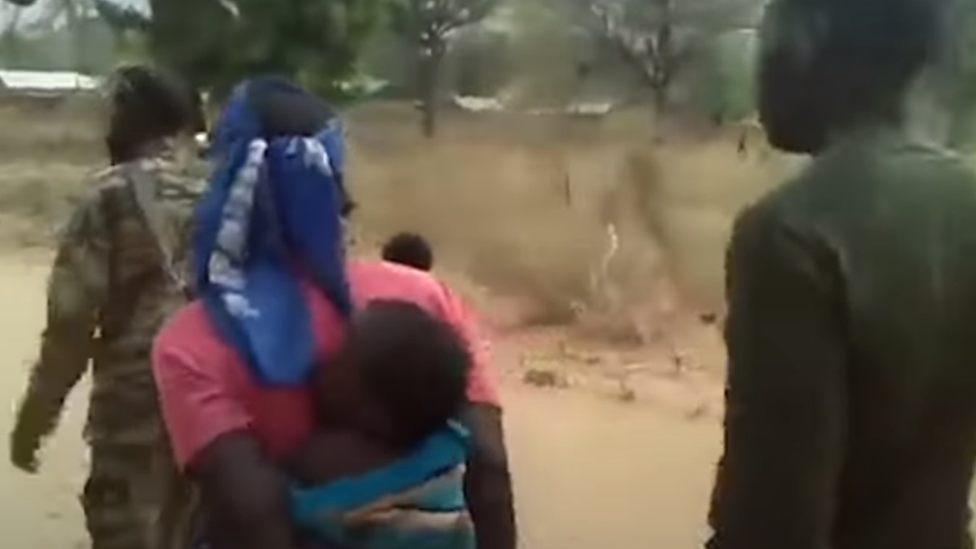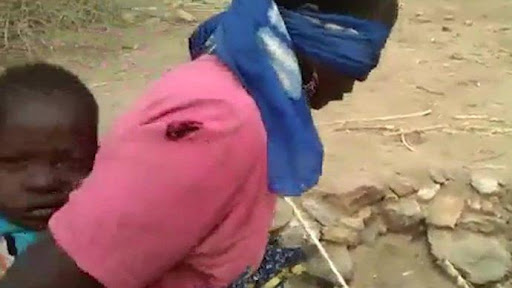YAOUNDE– Four Cameroonian soldiers have been sentenced to 10 years for their roles in shooting dead two women and two children in 2015.
The killings were captured on a video that circulated in 2018, which showed the victims being hooded and shot.
The government initially dismissed the footage as “fake news”, but later arrested seven soldiers.
An investigation by BBC Africa Eye showed that the incident happened in a village in the far north of Cameroon.
It also identified three of the soldiers who pulled the trigger.
In the video, the soldiers are seen accusing the women of involvement with Boko Haram, the militant Islamist group whose insurgency in neighbouring Nigeria had spread across the border.
The victims, who included a baby tied to one of the women’s backs, were then marched down a dusty road, blindfolded and shot 22 times.
Out of the seven who were put on trial by a military court in the capital, Yaoundé, two were acquitted.
As well as the four soldiers receiving 10-year sentences for carrying out the killings or being complicit in them, a fifth soldier was sentenced to two years for filming and sharing the footage of the incident.
The BBC investigation meant that the incident gained international attention with the Twitter thread explaining the story gaining millions of views.

The nation was shocked when the video first came to light in 2018 but the government was quick with its denials.
Initially, the government spokesperson said the film was shot in Mali and the uniforms shown in the footage were not ones used by soldiers in that area of Cameroon.
But as the evidence mounted it became more difficult to deny.
It is rare for soldiers to be convicted for the killing of civilians in Cameroon but it has happened before.
Three are currently in jail over the deaths of 13 civilians in the country’s North-West region, where the army is fighting a separatist insurgency.
The 10-year sentences may appear lenient but they are in line with similar incidents, a lawyer told me.
The length of a sentence is decided by a judge, the circumstances under which the crime was committed and his interpretation of the law.
SOURCE: BBC NEWS

